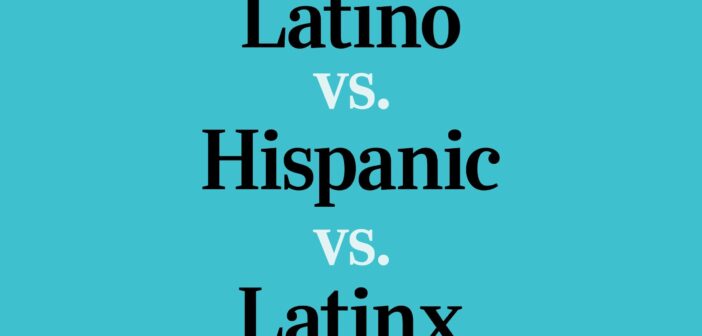In recent years, the term Latinx has gained recognition within the Hispanic community. Latinx is a gender-neutral alternative to describe those who are of Latin American descent. However, according to a 2020 Pew Research study, only 23% of Hispanics have heard of Latinx. It has also gained notoriety. A 2021 Bendixen & Amandi International survey among Hispanic voters found that 40% of Hispanic voters were bothered or offended by the usage of the term Latinx.
A polarizing term
Some elected officials and Latino civil groups have spoken out against the usage of Latinx. Democratic U.S. Rep. Ruben Gallego of Arizona, who heads the Congressional Hispanic Caucus, tweeted in December his congressional staff would not be allowed to use the term Latinx in official communications.
“When Latino politicos use the term (Latinx) it is largely to appease white rich progressives who think that is the term we use. It is a vicious circle of confirmation bias,” Gallego wrote in his tweet.
Latinx has become a polarizing term among Hispanics across the country. But is the term just as polarizing among Hispanic students at NCC? Its populace is pursing higher education and is younger than the general Hispanic population.
Views of ‘Latinx’ on NCC’s campus
NCC students who identify as Latina/o, Hispanic or Latinx took a survey about their preferences. The results of the survey show nearly 30% of respondents identified as Latinx. This is a far greater percentage than the 2% of Hispanic voters who identified with the term in the Bendixen & Amandi survey.
According to the NCC survey, slightly over 23% of respondents said they were bothered or offended by the usage of the term Latinx. However, the sample size consisted of only 17 responses. Therefore, it’s hard to draw anything conclusive. However, the results are in line with the Bendixen & Amandi survey and the Pew Research study which show that younger Hispanics, specifically ages 18-29, and Hispanics with at least some college experience use Latinx more than older age groups.
‘Latinx’ gives choice, ‘Hispanic’ out of date
Starla Journet, ’22, identifies as Latinx and non-binary. They feel the term is more inclusive.
“Latinx lets me choose,” Journet said, “it doesn’t restrict me to Latino or Latina.”
Journet identifies racially as American Indian, which has refrained them from using the term Hispanic. When they were growing up, their dad said ‘Hispanic’ seemed like a colonized term. “It’s kind of an old, outdated term, honestly,” said Journet.
Journet is referring to Latin America’s shared history of being colonies of Spain. This era of colonization began in the 1500s and lasted until the mid-1800s. Around 35% of respondents in the NCC survey identified as Hispanic. This is significantly lower than in the Pew Research study and Bendixen & Amandi survey, which had 61% and 68%, respectively, of respondents identify as Hispanic.
Maria Alvarado, ’24, is the publicist for NCC’s Latinx Student Association. She holds similar beliefs as Journet.
“I can say I’m Latina…and that’s fine, but bringing in that inclusivity,” Alvarado said, “especially with people who are non-binary, Latinx is just a more inclusive term to make sure that those people feel like they’re in a safe space.”
Alvarado was asked if terms like Hispanic or Latin American could also be considered gender-neutral, something Gallego added on in his December tweet. She said, “Latinx is a little bit more specific…It kind of just goes back to who we are as a culture,” As for the term Hispanic, she agrees with Journet. “It includes Spaniards. Those are the people that colonized us.”
On the NCC survey, four respondents said they are bothered or offended by the usage of Latinx.
Fear of erasure of culture
Journet believes when addressing people of Spanish and Latin descent, the term Latinx should be used. “And even if they don’t, we shouldn’t be berating them for it either,” they said. Journet claims the culture of some Latinx people is still immensely gendered. These people might find terms like Latinx as an erasure of their culture.
“I don’t think it’s necessarily erasing Hispanic, colonialism and all that kind of stuff,” said Alvarado, “but it just highlights really where we’re at now.”

